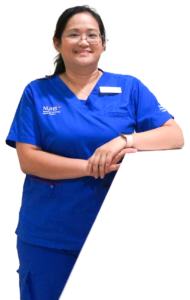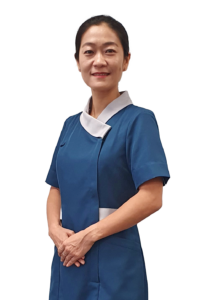Four NUS Nursing alumni share their stories, inspirations and dreams
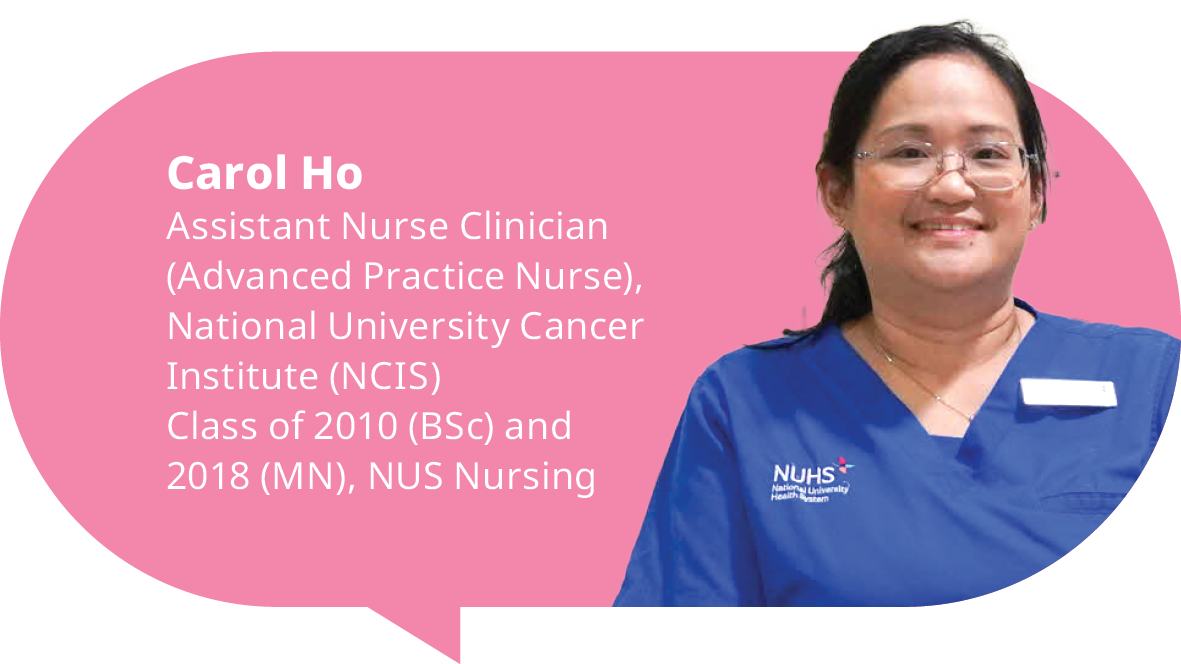
#1. Success the second time around
Carol was first nominated for the Nurses’ Merit Award four to five years into her Nursing career—but did not receive it then. She said, “I was disappointed and thought that I would not be shortlisted for the award again. So it was a pleasant surprise to be nominated again and I am thankful for the support from my leaders and various teams that I’ve worked with.”
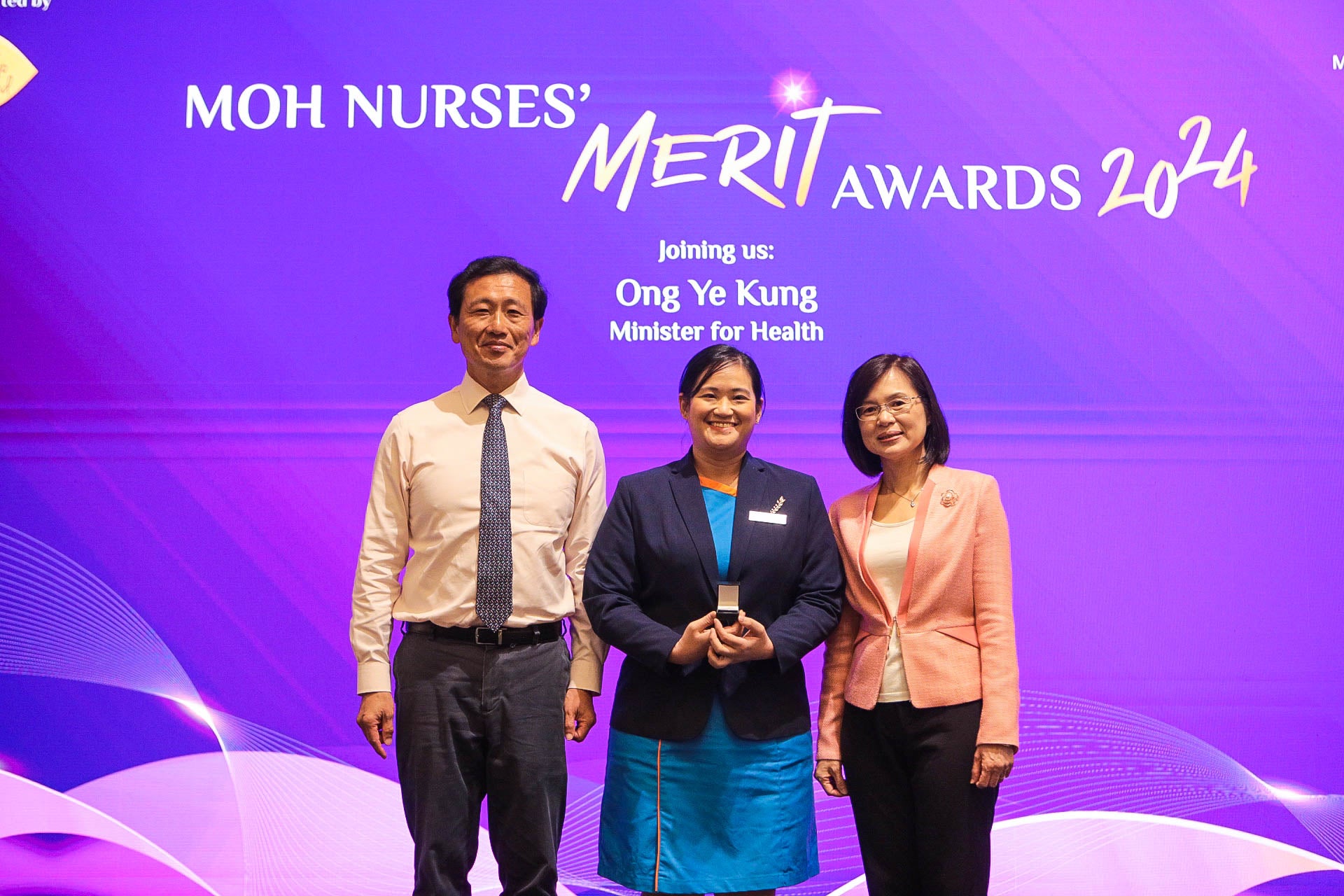
In between the two nominations, Carol not only continued honing her skills in the oncology wards, but also strengthened her credentials and skills set by going for the Master of Nursing course to become an Advanced Practice Nurse (APN). “I enjoyed my time in the wards but I felt limited to what I could do as a nurse. That’s why I’m glad my leaders suggested and supported my decision to become an APN.”
#2. A good day is when all her patients are well cared for
Carol runs outpatient specialty clinics for gastrointestinal (GI) cancers, focusing on cancer survivorship and treatment related toxicities, as well as other shared services anchored by NCIS APNs such as the Urgent Care Clinic (UCC) and Short Stay Ward (SSW). On a typical day, this could mean seeing patients with a range of symptoms and degrees of severity. She said, “A patient could present with hypotension requiring urgent attention and management while others are referred to us for fever or jaundice—the challenging part is making sure that everyone is attended to promptly.”
But such busy days could be some of the most fulfilling as well, Carol reflected. “When I am able to coordinate the care of patients well—patients get the care they need, my diagnosis is correct, near misses are prevented—it’s affirmation that I’m making a difference as an APN.” Running specialty clinics also means that Carol gets to form long-term bonds with patients. “Some of them have journeyed with me for five years, and it’s heart-warming when they don’t just trust me as a medical professional—but see me as a friend too.”
#3. Future plans
A Nurses’ Merit Award under her belt, Carol plans on continuing to hone her clinical skills. “The more you learn, the more you realise you don’t know,” she said. “Especially when oncology moves so quickly—for example, the treatment for liver cancer today is very different from what it was when I started as an APN five to six years ago.”
Another priority is training the next generation of nurses. “There are lots of things I want to do for my patient population—but there’s just no capacity at the moment,” she explained. “Currently, I’m training a young nurse. The hope is for her to take over and expand part of my current portfolio in the future—so that I can focus on enhancing our Oncology Nursing services.”
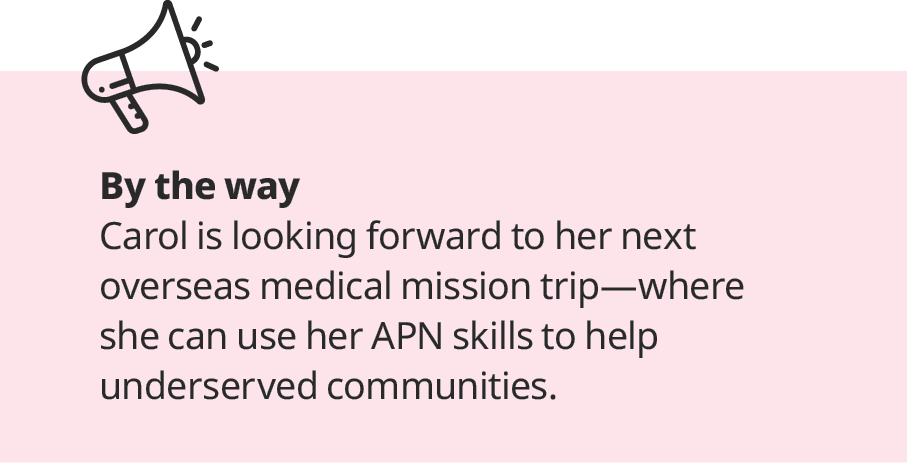

#1. The power of words
The Nurses’ Merit Award recipient remembers a time when things were not always so rosy. “I actually flunked my first practical assessment (taking of vital signs) in school and had to redo it,” he admitted. “At that time, the lecturer told me to think hard about whether Nursing really was for me—and to stop wasting time if it wasn’t.”
“Her words were a wake-up call. I wasn’t so serious about my studies before that, but there and then I decided that I should just do things once and do them well.” When the same lecturer supervised his final posting, she expressed her surprise at his proactivity and maturity. “She told me that she didn’t expect me to have grown so much—and her words of affirmation went a long way.”
#2. There are no bad days at work
“It sounds weird, but it all depends on your outlook,” Kiren said. “I work in the paediatric intensive care unit (PICU), and there was once where a patient’s dad came close to assaulting me. I could have taken that as a bad day—but then I thought about how he was having an equally bad (or worse) day.”
Thankfully—“The dad apologised the next day, and we continued working together to care for his child in the PICU. So for me, it’s really a matter of doing what I can today and trying again tomorrow.” Kiren also credits his robust support network for getting him through rough patches. “No matter what, I know that my family is there to support me at home, as my colleagues do at work.”
#3. An advocate for nurses
Kiren has been with the NUH for 12 years and is the nurse manager of both PICU and Children’s Emergency. “Over the years, I’ve had many opportunities to try new things—from rotations in the wards to a two-year secondment with the Ministry of Health. My work is never mundane.”
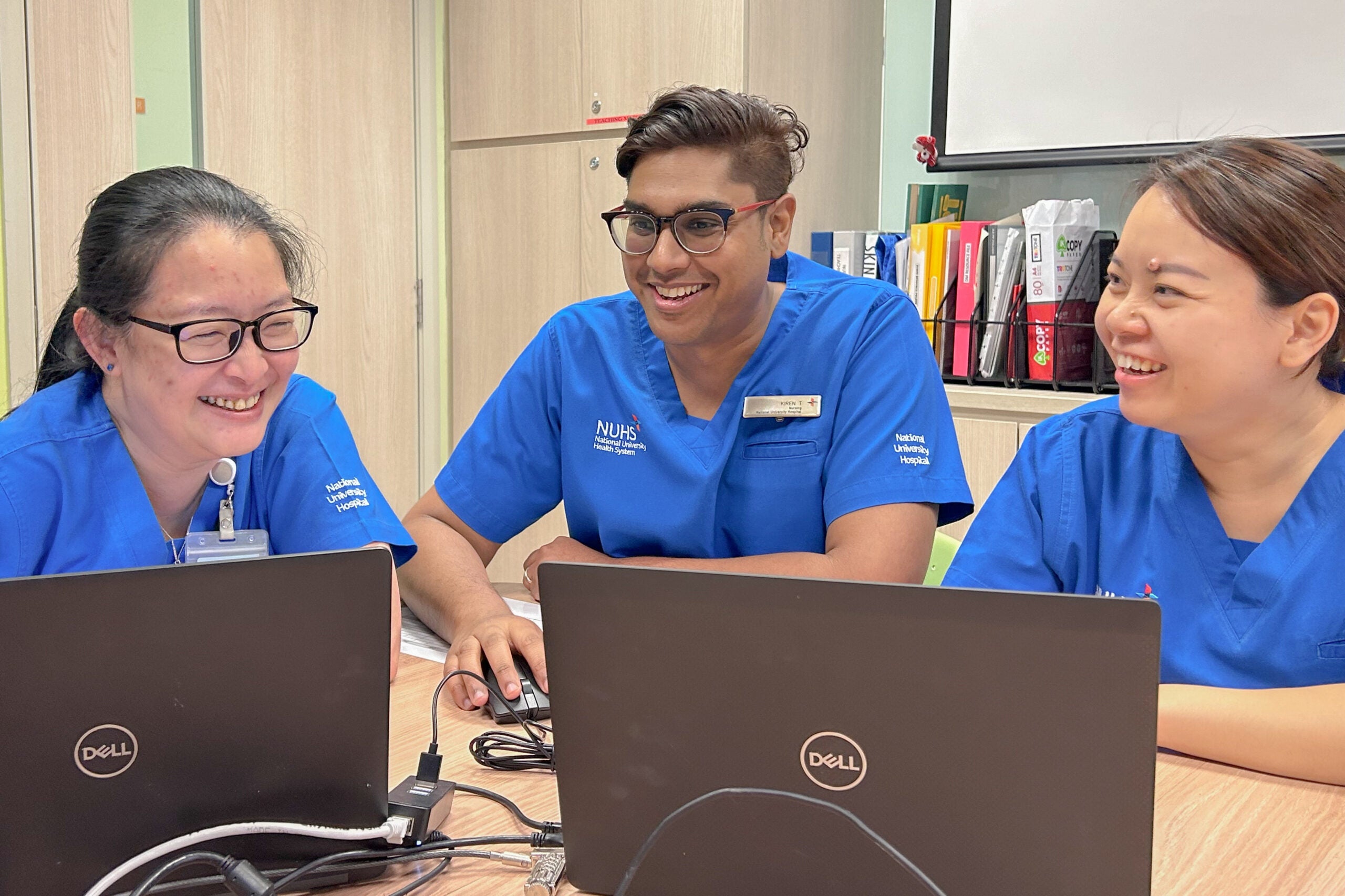
He’s now gearing up for the next chapter of his Nursing journey—at Tengah General and Community Hospital. He said, “I’m part of the core team planning the hospital, looking at Nursing operations as a whole. That puts me in a position to be an advocate for change—challenging the status quo and pushing for innovations such as smart technology, so that nurses can continue working efficiently and comfortably even with a shrinking workforce.”
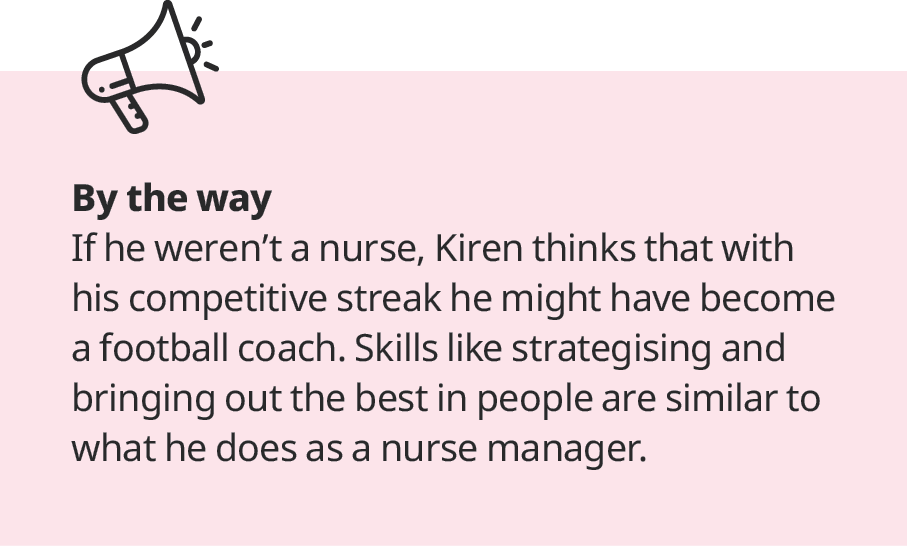
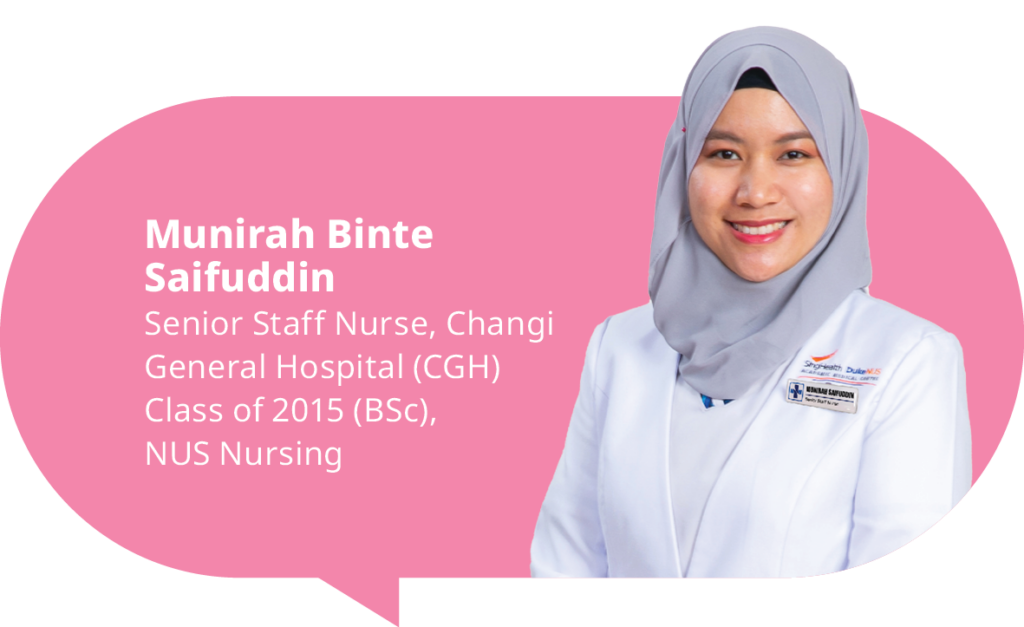
#1. An inspirational great-grandmother
Munirah’s journey into Nursing began when her late great-grandmother was hospitalised at CGH during her A-Levels year. Munirah said, “I was considering my career path after A-Levels, and that was when my great-grandmother encouraged me to become a nurse. I also saw for myself how the nurses brought great comfort to her during her hospital stay.”
Though Munirah’s great-grandmother passed away in 2012, memories from that time have stayed with Munirah ever since. When Munirah was posted to CGH after graduation, it was like a homecoming. “It felt like I was back to care for my ‘great-grandmother’—some patients remind me of her so much that it feels like I am with her again,” she shared.
#2. Compliments make her day
Today, Munirah is a Senior Staff Nurse in the hospital’s orthopaedic surgery ward. While the days are busy and fast-paced, Munirah appreciates the opportunities to meet patients from all walks of life. She said, “Patients have their unique personalities, and it’s fun joking with them to lighten the mood.” On the occasional language barrier, she turns to Google Translate. “It always feels like an accomplishment when we finally understand each other.”
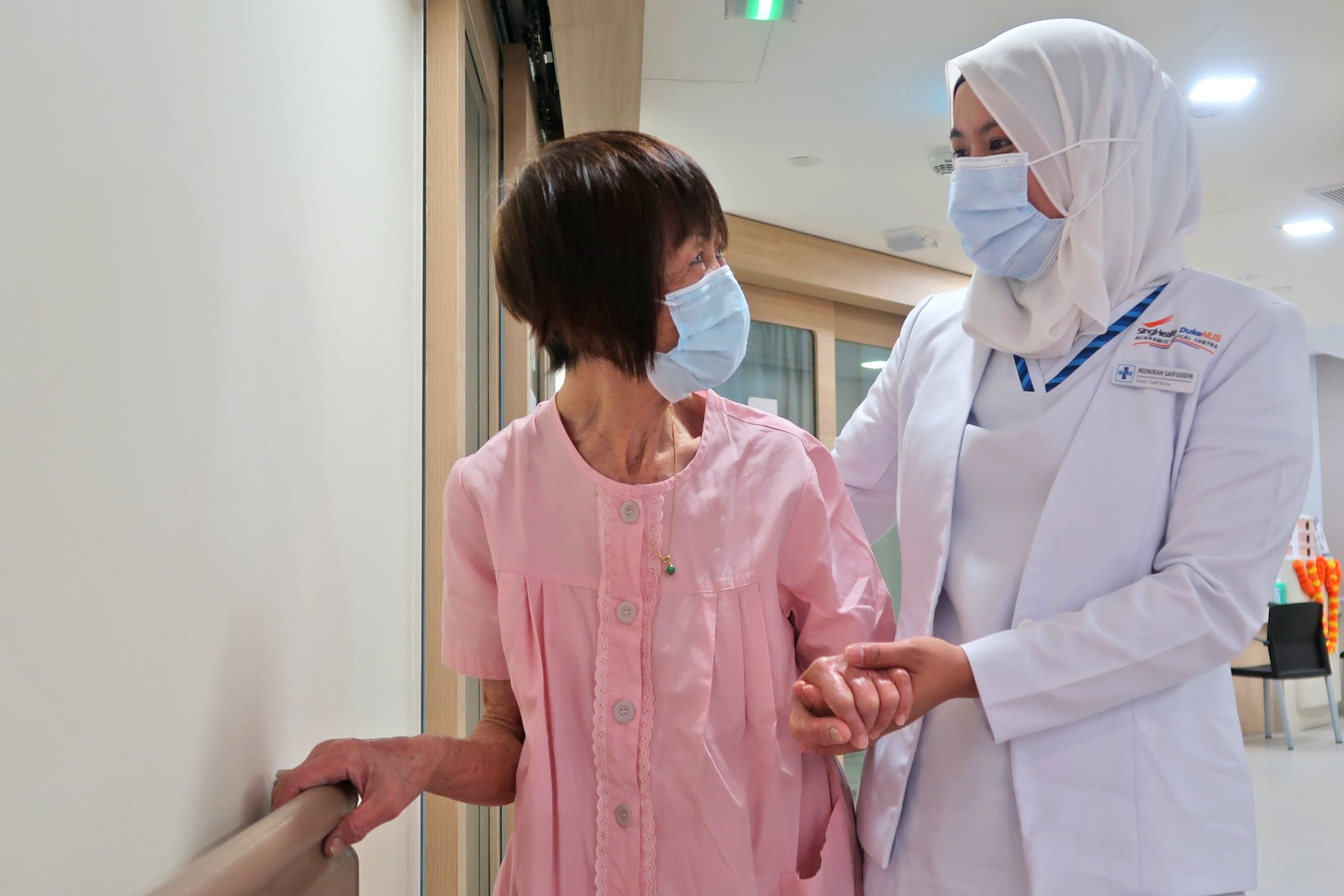
And when patients and their loved ones offer compliments? “It’s a definite morale booster,” Munirah said. “Nursing may be hard work, but when colleagues and patients enjoy my presence in the ward, or they look forward to my shifts, it makes my day that our efforts are recognised and appreciated.”
#3. A gleam in her eye
As for what comes next, Munirah is keeping her options open.
Noting that nurses have the flexibility to pursue different career tracks, there is one that has caught Munirah’s eye—education. “Back when I was trying to decide on my career path, becoming a math or science teacher was also at the back of my mind,” she explained. “I’m considering becoming a clinical instructor where I can impart my clinical knowledge and skills to new generations of nurses while fulfilling my aspirations. Anything is possible!”
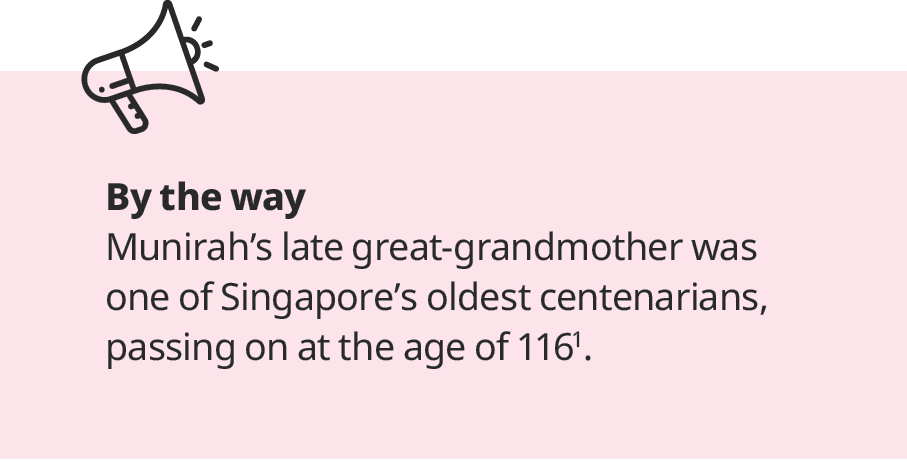
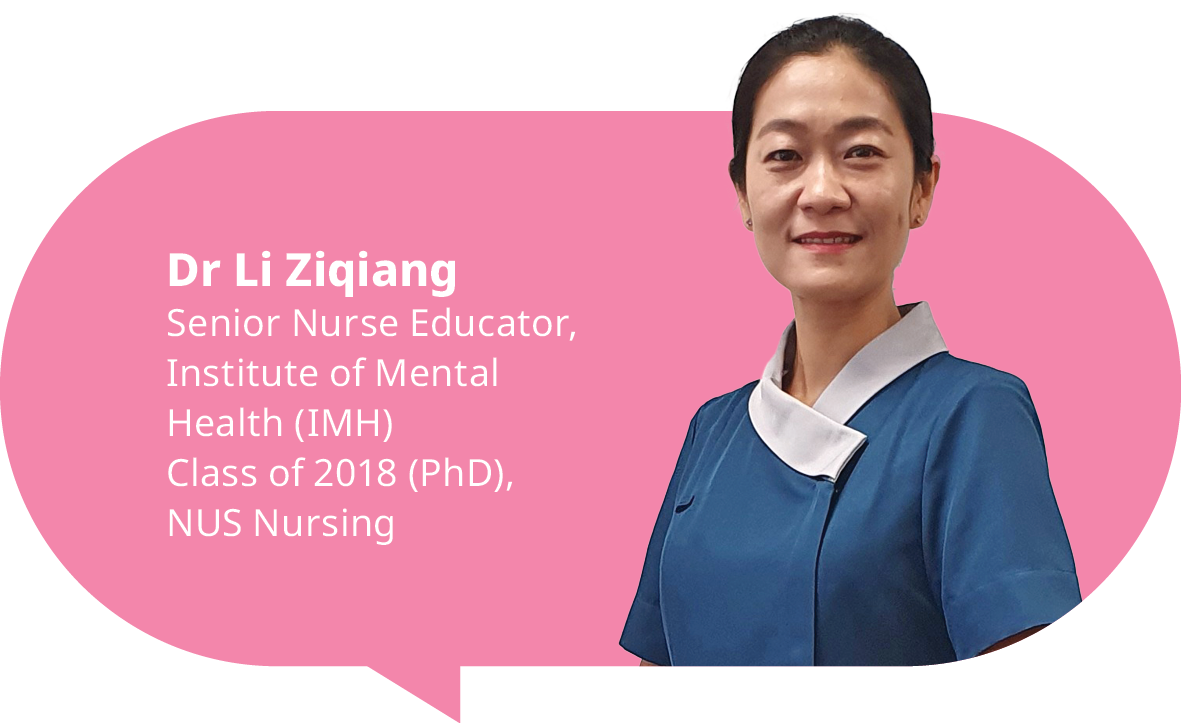
1. She believes in paying it forward
Joining the Nursing profession fresh out of polytechnic, Ziqiang had fears that are familiar to many young graduates. “I worried about being able to cope, and also my lack of knowledge about mental healthcare,” she said. “But I was fortunate to meet a group of very dedicated nurses at IMH who exemplified person-centred care—they completely changed the way I thought about psychiatric Nursing.”
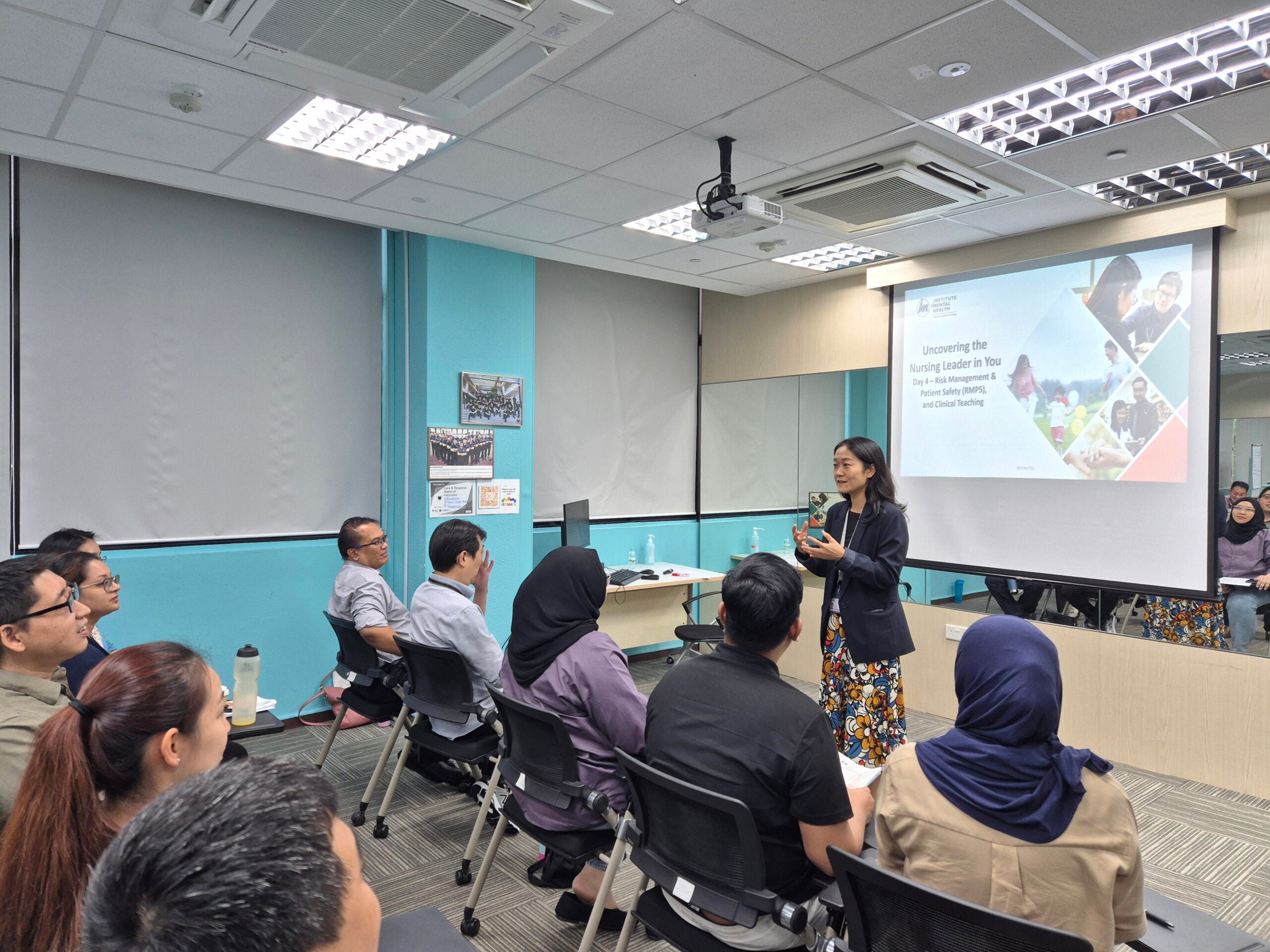
As a Senior Nurse Educator today, Ziqiang is doing the same for pre- and post-registration nurses. She facilitates clinical postings for pre-registration nurses, and develops IMH’s in-house training courses. She said, “When I manage to spark their interest and students share that they now better appreciate psychiatric Nursing—it feels like a great accomplishment.”
#2. Bad days don’t last
“Sometimes, bad days are like hitting a wall; patients show reluctance to collaborate on their treatment or get readmitted in a few days after we’ve worked on their recovery for a long time,” Ziqiang said. When such days happen, Ziqiang looks to her colleagues for support. “We will brainstorm together for ways to improve the situation. My philosophy is that nothing is permanent, so we just have to persevere until the problem is solved.”
Ziqiang also has another source of inspiration. “Oftentimes, despite their challenges—including mental health, social or financial issues—we see patients and caregivers trying their best to be resilient,” she said. “And when they see us frustrated, they would even try to comfort us. That never fails to energise and inspire me to continue trying, but in another way.”
#3. Receiving the Nurses’ Merit Award is a reminder to go further
To Ziqiang, receiving the Award is an affirmation that she is on the right path, and a reminder to continue doing work that is valuable to healthcare and society. She said, “In psychiatric Nursing, we are privileged to work with our patients over time and bond with them. I’ve seen how my efforts could make a meaningful difference in their lives.”
Moving forward, she aims to continue expanding nurses’ capabilities through education and research, and contribute to the collective effectiveness of healthcare. “Besides doing my own research into more effective interventions, I hope to empower more IMH nurses to engage in research—to enable Nursing science to scale new heights and play a greater role in responding to healthcare needs.”
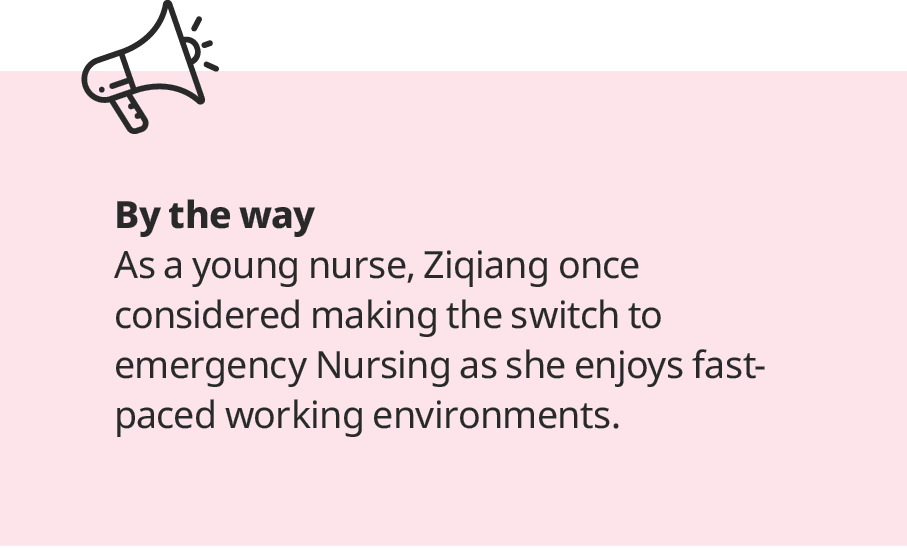
[1] web.archive.org/web/20160113003913/http://news.asiaone.com/print/News/AsiaOne%2BNews/Singapore/Story/A1Story20111217-316813.html


